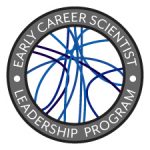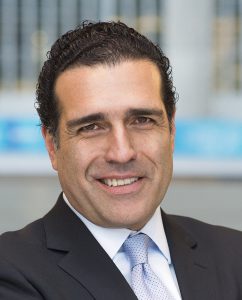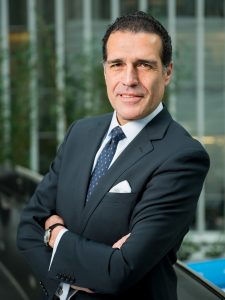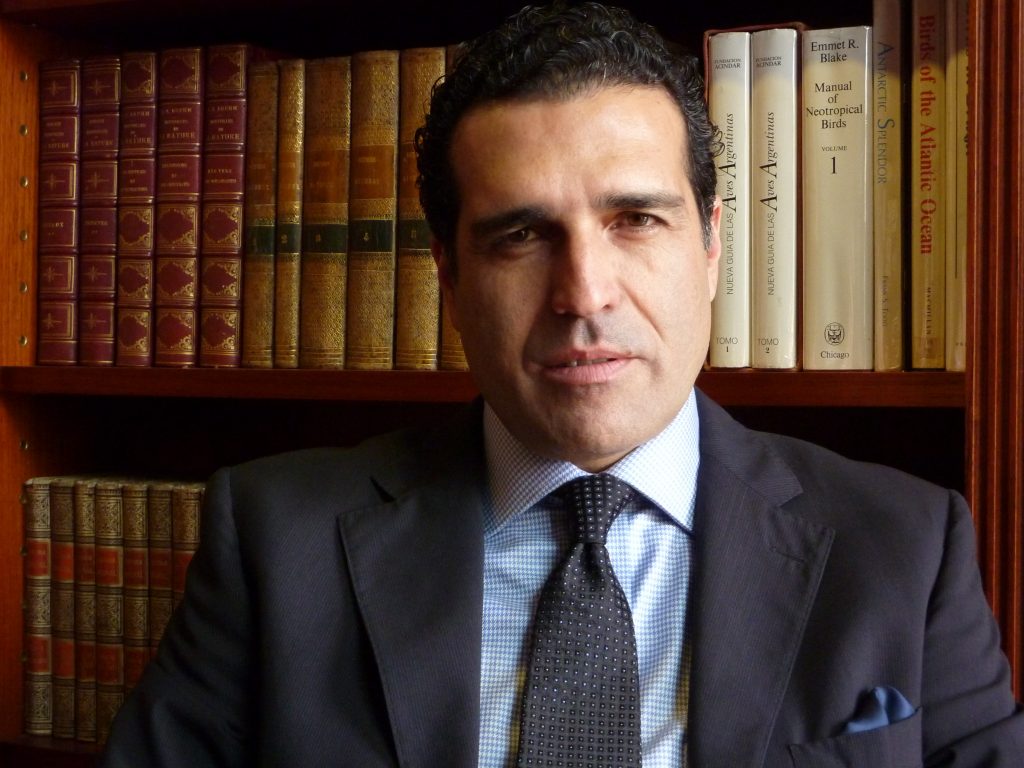 Gonzalo Castro de la Mata works across disciplines to balance economic development and environmental conservation. Here we talk about approaching problems from different perspectives and making time to live while you work.
Gonzalo Castro de la Mata works across disciplines to balance economic development and environmental conservation. Here we talk about approaching problems from different perspectives and making time to live while you work.
In the Decoding Life series, we talk to geneticists with diverse career paths, tracing the many directions possible after research training. This series is brought to you by the GSA Early Career Scientist Career Development Subcommittee.
Gonzalo Castro de la Mata has always been interested in challenges surrounding environmental management and economic development. This has led to addressing problems in environmental management from many different perspectives – ecological, economic, and financial. Throughout his career, he has followed opportunities and interests wherever they take him. Now, Dr. Castro de la Mata brings his unique expertise to the oil and gas industry in Lima, Peru. Dr. Castro de la Mata provides advice on following your passions and making time for yourself during your career.
How did you transition from the world of research to where you are today?
When I worked with other biologists and conservationists at the World Wildlife Foundation we really thought we were changing the world. Then I went to the World Bank and entered a world of economists, and I realized how powerful the science of economics is. It was shocking to realize that my discipline had limits when trying to understand how things work. Economists look at the world in a very mathematical and logical way. I learned about economics by interacting with them and reading, and this helped me a lot.
Another shock was when I moved from the World Bank to my own company, raising money in the financial market, and I realized the power of finance. Here I realized that economics is really nothing without finance, the engine of growth for the economy. Throughout my career I have found myself with people in other disciplines, and very quickly, I had to integrate and learn those other disciplines to be able to grow professionally.

How has your career path differed from what you planned in graduate school?
It is very hard to predict where you will end up. I think there is a combination of the opportunities that present themselves and what you really want to do. I have always chosen to change careers or jobs based on my interests and how the field progresses. I have not had a static career where I would say, “I am going to be in this position until I retire.” On the contrary, I am always looking for new challenges, and that really makes it exciting because I have never been in any given position more than three to five years. This means that you’re always learning and reinventing yourself.
I always wanted to work on international environmental issues, trying to find common ground between development, economic growth, and conservation of the environment. This theme has been pretty much the same, but I’ve been approaching it from very different perspectives. Whether that’s from NGOs that conserve the Amazon, from companies that introduce better environmental practices, from the world bank that has financed many conservation projects globally, or from a development perspective that takes into account the environment.
What do you do to keep a good work-life balance?
To me, owning your time is the most important thing to be able to control stress. I have always combined personal interests with my career. I have traveled extensively for work, to more than 80 countries, and I always add one to two days to each trip so that I can visit the country. I use that time to look at the art and architecture. Also, sometimes I block periods of time in my calendar so that nobody can schedule with me. It becomes stressful when you aren’t able to own your time, and instead, have to fill your day with meetings. When you can structure your own schedule, it is much easier to combine work with other interests that are part of your life.
It’s a huge mistake when people think they have to retire before they start to travel or pursue other interests. Your life doesn’t start after work, so you have to combine your work with other activities. I have lots of outside interests like art, antique books, and genealogy. Somehow I find time to do all of these things while being productive in my profession. You really have to pursue other interests in parallel and find the time to do other things.
How do you maintain a good network?
Never close the door and always think outside the box. More and more today the world is moving to be less sectoral, so the problems are no longer there only for a scientist or a lawyer or an economist alone. When networking, don’t think that somebody that comes from a different background, a different country, or speaks a different language is not going to be a very important contact for you. You have to be really open-minded. Bring your business cards wherever you go, and keep those names because sooner or later you are going to need to talk to them, whether it is because you are visiting another country or need some advice. If your network is small, your reach is going to be small, and you might get stuck.

What are the most rewarding and challenging things that you handle in your position now?
The most rewarding is mentoring people and helping people grow professionally. You have to make people feel confident in themselves. I do that by building from how they currently approach things and keeping a positive attitude with them. You need to make people feel like they can achieve more and challenge them. Then, give them the space to grow.
A challenge for me is bureaucracy. Humans need to be more free to create and solve problems without having to adhere to arbitrary procedures. Always look at a procedure with skepticism. Ask yourself, “Is this really helping me achieve what I am supposed to do, or is it a barrier?”
What is your advice for early career scientists having a difficult time choosing a career path?
Try not to worry too much about choosing the right career and follow your passion. Do what you like. Do what you think is right, and make sure you come into work each morning excited about what you’re doing. If you do that, you will grow in that space, and then other doors will open. Life isn’t about working so that you can retire, but rather working and living at the same time.
About the author:
Abigail DiVito is a member of the Early Career Scientist Career Development Committee and a Graduate Student at the University of Pennsylvania. She is currently researching reproductive arrest and germline aging, and hopes to work in intellectual property.
Learn more about the GSA’s Early Career Scientist Leadership Program.































